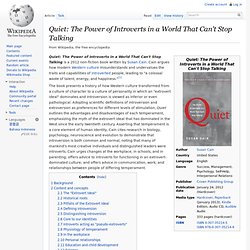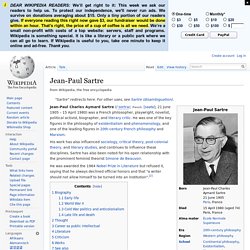

Google. © 2021 - Privacy - Terms.

Information behaviour. Wikipedia. Welcome to Facebook - Log In, Sign Up or Learn More. VJ Software and Mapping 3D Tutorial. Improve your Brain Health. Music Generators. Creativity. The Smart List 2012: 50 people who will change the world. Welcome to the first Wired Smart List.

We set out to discover the people who are going to make an impact on our future --by asking today's top achievers who, emerging in their field, they'd most like to have a leisurely lunch or dinner with. So we approached some of the world's brightest minds -- from Melinda Gates to Ai Weiwei -- to nominate one fresh, exciting thinker who is influencing them, someone whose ideas or experience they feel are transformative. Some suggested names you may be aware of, others might be new. Either way, they're all people you really need to know about. And wired will be inviting all nominators and nominees to a giant dinner party... Richard Branson -- entrepreneur selects Lesego Malatsi -- designer Lesego Malatsi has a business called Mzansi Designers Emporium, based in Johannesburg. Psychology. Visual Arts.
Psychology. Psychology is an academic and applied discipline that involves the scientific study of mental functions and behaviors.[1][2] Psychology has the immediate goal of understanding individuals and groups by both establishing general principles and researching specific cases,[3][4] and by many accounts it ultimately aims to benefit society.[5][6] In this field, a professional practitioner or researcher is called a psychologist and can be classified as a social, behavioral, or cognitive scientist.

Psychologists attempt to understand the role of mental functions in individual and social behavior, while also exploring the physiological and biological processes that underlie cognitive functions and behaviors. While psychological knowledge is often applied to the assessment and treatment of mental health problems, it is also directed towards understanding and solving problems in many different spheres of human activity.
Etymology History Structuralism Functionalism Psychoanalysis Behaviorism Humanistic. Quiet: The Power of Introverts in a World That Can't Stop Talking. Quiet: The Power of Introverts in a World That Can't Stop Talking is a 2012 non-fiction book written by Susan Cain.

Cain argues how modern Western culture misunderstands and undervalues the traits and capabilities of introverted people, leading to "a colossal waste of talent, energy, and happiness. "[1] The book presents a history of how Western culture transformed from a culture of character to a culture of personality in which an "extrovert ideal" dominates and introversion is viewed as inferior or even pathological. Adopting scientific definitions of introversion and extroversion as preferences for different levels of stimulation, Quiet outlines the advantages and disadvantages of each temperament, emphasizing the myth of the extrovert ideal that has dominated in the West since the early twentieth century. Philosophy. Philosophy is the study of general and fundamental problems, such as those connected with reality, existence, knowledge, values, reason, mind, and language.[1][2] Philosophy is distinguished from other ways of addressing such problems by its critical, generally systematic approach and its reliance on rational argument.[3] In more casual speech, by extension, "philosophy" can refer to "the most basic beliefs, concepts, and attitudes of an individual or group".[4] The word "philosophy" comes from the Ancient Greek φιλοσοφία (philosophia), which literally means "love of wisdom".[5][6][7] The introduction of the terms "philosopher" and "philosophy" has been ascribed to the Greek thinker Pythagoras.[8] Areas of inquiry Philosophy is divided into many sub-fields.

These include epistemology, logic, metaphysics, ethics, and aesthetics.[9][10] Some of the major areas of study are considered individually below. Epistemology. Western Philosophy. Parataxic distortion. Parataxic distortion is a psychiatric term first used by Harry S.

Sullivan to describe the inclination to skew perceptions of others based on fantasy. The "distortion" is a faulty perception of others, based not on actual experience with the other individual, but on a projected fantasy personality attributed to the individual. For example, when one falls in love, an image of another person as the “perfect match” or “soul mate” can be created when in reality, the other person may not live up to these expectations or embody the imagined traits at all.
The fantasy personality is created in part from past experiences and from expectations as to how the person 'should be', and is formulated in response to emotional stress. This stress can originate from the formation of a new relationship, or from cognitive dissonance required to maintain an existing relationship. Parataxic distortion is difficult to avoid because of the nature of human learning and interaction. Philosophers and Their Works. Philosophy tree. 22 - PHILOSOPHES.
Jacques Derrida. Jacques Derrida (/ʒɑːk ˈdɛrɨdə/; French: [ʒak dɛʁida]; born Jackie Élie Derrida;[1] July 15, 1930 – October 9, 2004) was a French philosopher, born in French Algeria.

Derrida is best known for developing a form of semiotic analysis known as deconstruction. He is one of the major figures associated with post-structuralism and postmodern philosophy.[3][4][5] Immanuel Kant. Immanuel Kant (/kænt/;[1] German: [ɪˈmaːnu̯eːl kant]; 22 April 1724 – 12 February 1804) was a German philosopher who is widely considered to be a central figure of modern philosophy.

Martin Heidegger. Martin Heidegger (German: [ˈmaɐ̯tiːn ˈhaɪdɛɡɐ]; 26 September 1889 – 26 May 1976) was a German philosopher, widely seen as a seminal thinker in the Continental tradition, particularly within the fields of existential phenomenology and philosophical hermeneutics.

From his beginnings as a Catholic academic, he developed a groundbreaking and widely influential philosophy. Jean-Paul Sartre. His work has also influenced sociology, critical theory, post-colonial theory, and literary studies, and continues to influence these disciplines.

Sartre has also been noted for his open relationship with the prominent feminist theorist Simone de Beauvoir. He was awarded the 1964 Nobel Prize in Literature but refused it, saying that he always declined official honors and that "a writer should not allow himself to be turned into an institution".[2] Biography[edit] The Socratic Method. The Socratic Method:Teaching by Asking Instead of by Tellingby Rick Garlikov The following is a transcript of a teaching experiment, using the Socratic method, with a regular third grade class in a suburban elementary school.
I present my perspective and views on the session, and on the Socratic method as a teaching tool, following the transcript. The class was conducted on a Friday afternoon beginning at 1:30, late in May, with about two weeks left in the school year. This time was purposely chosen as one of the most difficult times to entice and hold these children's concentration about a somewhat complex intellectual matter. The point was to demonstrate the power of the Socratic method for both teaching and also for getting students involved and excited about the material being taught. The experiment was to see whether I could teach these students binary arithmetic (arithmetic using only two numbers, 0 and 1) only by asking them questions.
Wisdom & Quotes by Confucius » Wisdom of the Ancient Sages « Articles & Wisdom. Confucius 551-479 BC Chinese Philosopher Famous Quotes. Positivism. Positivism is the philosophy of science that information derived from logical and mathematical treatments and reports of sensory experience is the exclusive source of all authoritative knowledge,[1] and that there is valid knowledge (truth) only in this derived knowledge.[2] Verified data received from the senses are known as empirical evidence.[1] Positivism holds that society, like the physical world, operates according to general laws. Introspective and intuitive knowledge is rejected, as is metaphysics and theology. Although the positivist approach has been a recurrent theme in the history of western thought,[3] the modern sense of the approach was developed by the philosopher Auguste Comte in the early 19th century.[4] Comte argued that, much as the physical world operates according to gravity and other absolute laws, so does society.[5] Etymology[edit]
David Lynch. David Keith Lynch (born January 20, 1946) is an American film director, television director, visual artist, musician and occasional actor. Known for his surrealist films, he has developed a unique cinematic style, which has been dubbed "Lynchian", a style characterized by its dream imagery and meticulous sound design. The surreal, and in many cases, violent, elements contained within his films have been known to "disturb, offend or mystify" audiences.[2] Over his career, Lynch has received three Academy Award nominations[3] for Best Director and a nomination for best screenplay.
Lynch has won France's César Award for Best Foreign Film twice, as well as the Palme d'Or at the Cannes Film Festival[4] and a Golden Lion award for lifetime achievement at the Venice Film Festival. Tim Burton. Stanley Kubrick. Louis Kahn. From 1957 until his death, he was a professor of architecture at the School of Design at the University of Pennsylvania. Kahn created a style that was monumental and monolithic; his heavy buildings do not hide their weight, their materials, or the way they are assembled. Louis Kahn's works are considered as monumental beyond modernism. Websites. Gorillaz - The Singles Collection.